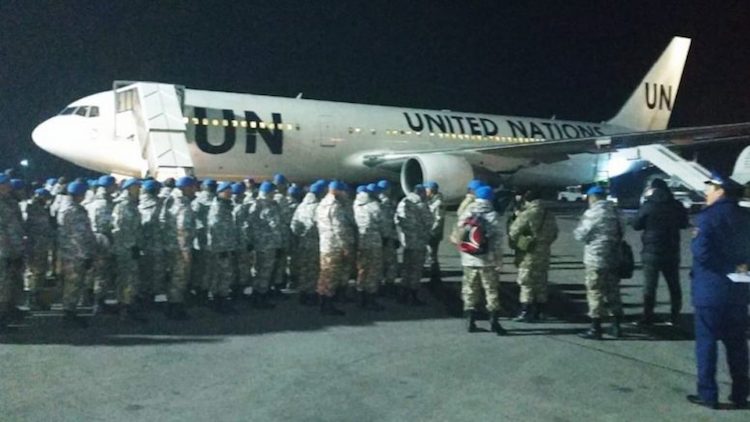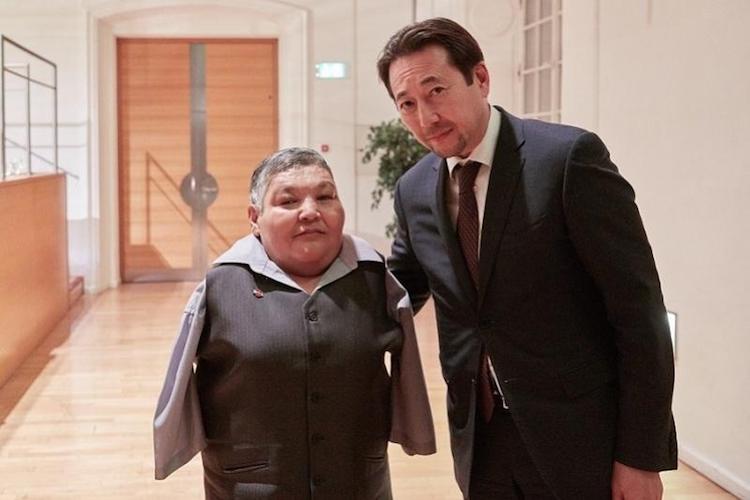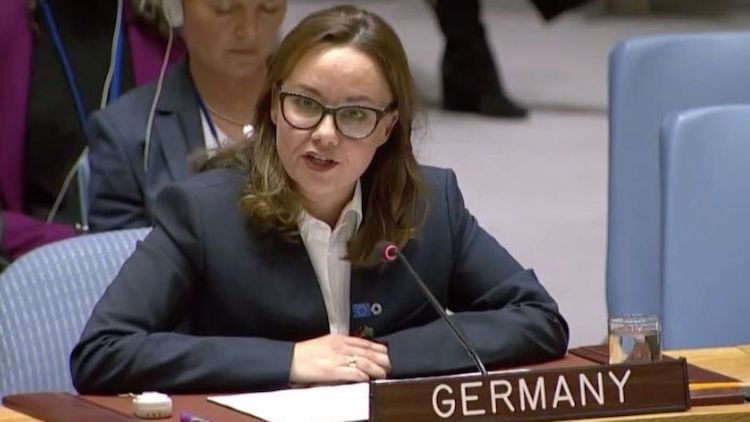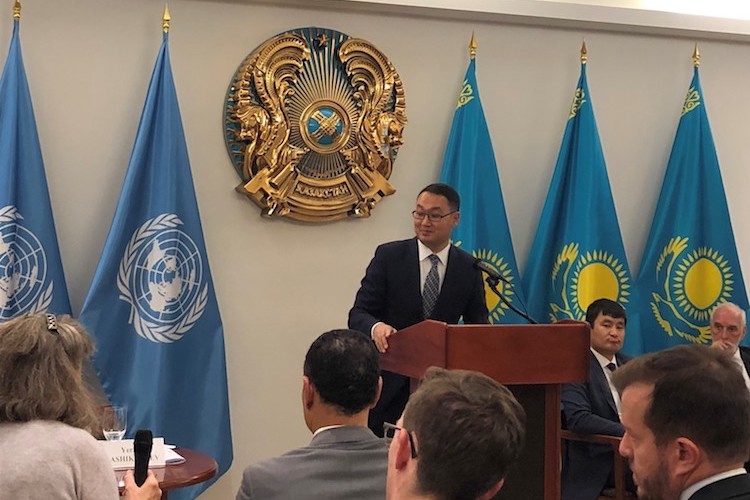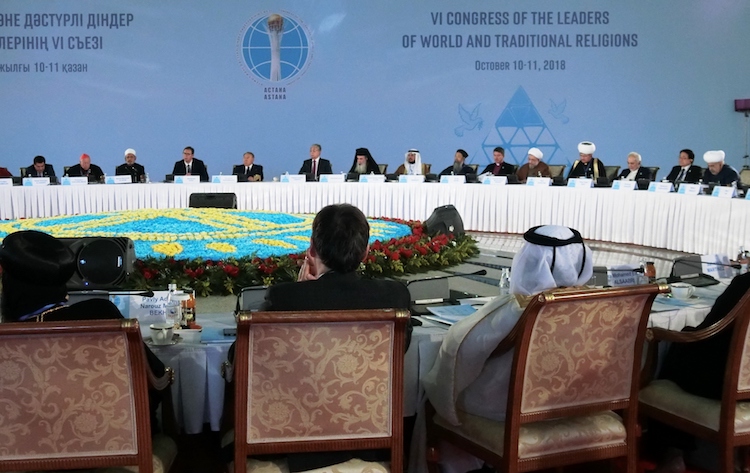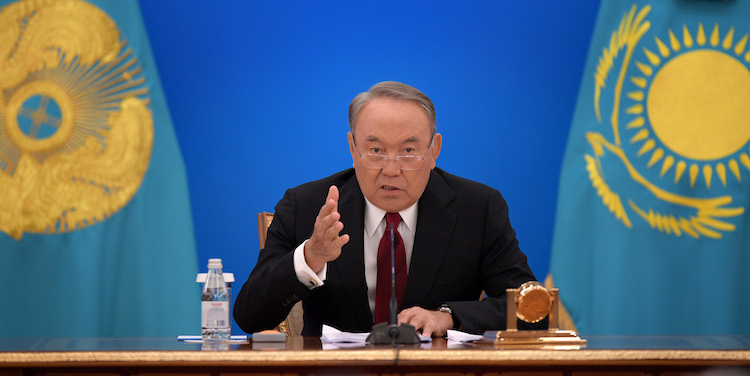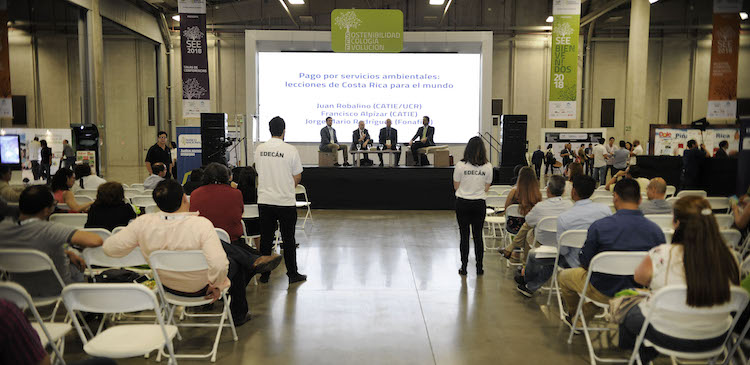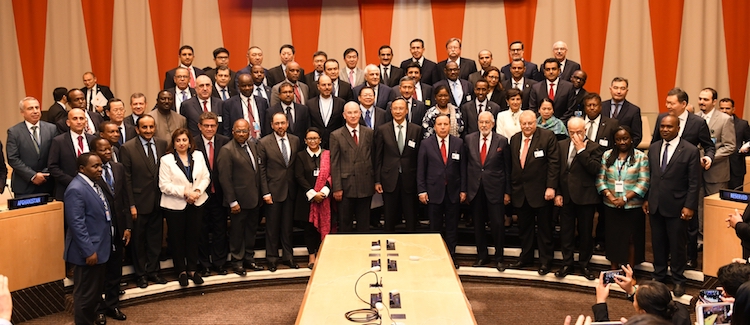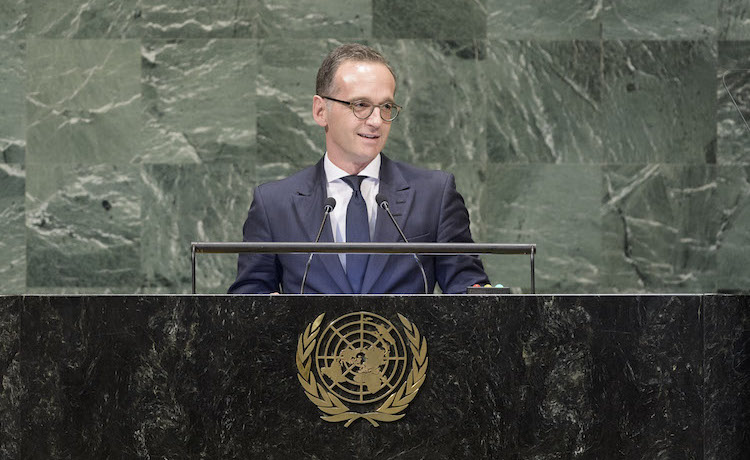By Santo D. Banerjee NEW YORK (IDN) – For the first time in the history of Central Asia, a peacekeeping contingent from the Republic of Kazakhstan is participating in a UN peacekeeping operation. 120 Kazakh peacekeepers have arrived in Lebanon to participate in the mission of the United Nations Interim Forces in Lebanon (UNIFIL). The […]
ATOM Project Ambassador Kuyukov Receives Nuclear-Free Future Award
By Kazinform ASTANA (IDN) – Kazakhstan’s famous artist, activist of the international anti-nuclear movement and Honorary Ambassador of ATOM Project Karipbek Kuyukov has received Nuclear-Free Future Award (NFFA). The awarding ceremony was held end of October at Salzburg University in Austria. Ambassador of Kazakhstan to Austria Kairat Sarybay congratulated NFFA laureates and highly praised their […]
Women, Peace and Security is Germany’s Priority in 2019-2020 Security Council Membership
By Santo D. Banerjee NEW YORK (IDN) – When Germany joins the UN Security Council next January as a non-permanent member for 2019-2020, promoting the ‘Women, Peace and Security Agenda’ by ensuring a greater political participation of women and prevention of sexual violence in conflicts, will be one of its priorities. The Security Council has […]
Participation in Landmark NATO Exercise Reveals Iceland’s Dilemma
By Lowana Veal REYKJAVIK (IDN) – Iceland, the most sparsely populated country in Europe, has no standing army. But it is a founding member of the 29-nation North Atlantic Treaty Organization (NATO), and is therefore taking part in Trident Juncture 2018, the largest NATO exercise since the end of the Cold War in December 1991. […]
Kazakh Initiated Forum Underlines Importance of NWFZs
By Santo D. Banerjee NEW YORK (IDN) – High Representative for Disarmament Affairs Izumi Nakamitsu has expressed her “gratitude” to the Kazakhstan for their continued partnership with the UN Office for Disarmament Affairs (UNODA), including through a series of Nuclear Discussion Forums (NDF), now in its eighth year. She was addressing a side event of […]
World Religious Leaders’ Astana Congress Pledges ‘Unity in Diversity’
By Ramesh Jaura ASTANA (IDN) – At a critical point in time when religious tolerance is being consigned to oblivion, an international conference has appealed “to all people of faith and goodwill” to unite, and called for “ensuring peace and harmony on our planet”. The appeal emerged from the two-day Congress of the Leaders of […]
Kazakhstan Still Has a Lot of Heights to Climb
By Nursultan Nazarbayev, President of the Republic of Kazakhstan Following are extensive excerpts from Kazakh President’s State of the Nation address on October 5, 2018 in the Akorda presidential residence. ASTANA (IDN | KAZINFORM) – Over the years of our independence we have achieved a great deal. Having created a modern progressive state with a […]
Costa Rica Set to Achieve Carbon Neutrality by 2021
By Fabiola Ortiz SAN JOSE, Costa Rica (IDN) – It has been twenty two years since Costa Rica embarked on its national program of payment for environmental services (PES), the first in the world to start a nationwide scheme for compensating landowners for keeping the forests standing for people and the planet. Now that the […]
Kazakh Initiated Global Coalition Aims at Terrorism-Free World
By J Nastranis NEW YORK (IDN) – In the first voluntary political declaration of its kind adopted at the global level, UN Member States have reiterated in the Code of Conduct for the Achievement of a World Free of Terrorism their commitments to strengthen international cooperation to reach the common goal of eradicating a crucial […]
Multilateralism and Sovereignty are not Antithetical
Viewpoint by Heiko Maas With three months to go for Germany joining the Security Council as a non-permanent member for 2019-2020, German Foreign Minister Heiko Maas spelt out in his speech at the general debate of the 73rd General Assembly of the United Nations on 28 September 2018 the country’s agenda putting the focus on […]

